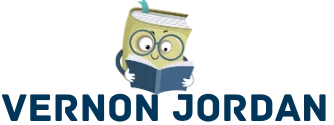In a fast-paced world where distractions are everywhere, cultivating productive habits is essential for success. These habits not only enhance efficiency but also foster a sense of accomplishment and well-being. By making small, intentional changes in daily routines, anyone can unlock their potential and achieve their goals.
Understanding the core principles of productive habits can transform how individuals approach their tasks. From time management techniques to prioritizing well-being, adopting these practices leads to improved focus and motivation. Embracing productive habits isn’t just about working harder; it’s about working smarter and creating a sustainable path to success.
Table of Contents
ToggleUnderstanding Productive Habits
Productive habits represent consistent actions that enhance efficiency and goal achievement. These habits form the foundation for a more focused and fulfilling life.
Definition of Productive Habits
Productive habits are behaviors that promote effectiveness in personal and professional environments. They include practices such as setting specific goals, prioritizing tasks, maintaining a structured schedule, and practicing self-discipline. Regularly engaging in these habits creates a framework for achieving desired outcomes and improving overall performance.
Importance of Productive Habits
Productive habits play a crucial role in optimizing time and resources. They lead to increased efficiency by helping individuals focus on essential tasks and minimize distractions. Research shows that adopting such habits correlates with enhanced well-being, as they instill a sense of purpose and accomplishment. Furthermore, productive habits foster resilience, enabling individuals to navigate challenges and remain committed to their goals.
Types of Productive Habits

Understanding the different types of productive habits helps individuals develop effective strategies for their personal and professional lives. Below are essential categories that enhance efficiency and foster growth.
Daily Routines
Daily routines form the backbone of productive habits. Routines establish consistency, making it easier to accomplish tasks efficiently. Key elements include:
- Morning Rituals: Engaging in activities like exercise, meditation, or journaling each morning boosts energy and focus for the day ahead.
- Work Blocks: Setting specific time blocks for focused work reduces distractions and increases productivity during high-concentration tasks.
- Evening Wind-Down: Implementing a structured evening routine facilitates relaxation and prepares the mind for restful sleep, promoting better performance the next day.
Time Management Techniques
Time management techniques optimize task efficiency and ensure priorities align with goals. Essential strategies involve:
- The Pomodoro Technique: This method breaks work into intervals, typically 25 minutes, followed by a short break, enhancing concentration and preventing burnout.
- Time Blocking: Allocating specific hours for different tasks aids in visualizing the day and maintaining focus on important activities.
- The Eisenhower Matrix: This tool categorizes tasks based on urgency and importance, helping individuals prioritize effectively and tackle significant tasks first.
Goal-Setting Strategies
- SMART Goals: Specific, Measurable, Achievable, Relevant, and Time-bound goals create a roadmap for success and focus efforts.
- Breakdown of Larger Goals: Dividing big projects into smaller, manageable tasks makes progress measurable and less overwhelming.
- Regular Review and Adjustment: Periodically assessing goals ensures alignment with personal values and adapting to changes helps maintain motivation and direction.
Developing Productive Habits
Developing productive habits requires intentional actions and strategies. Individuals can enhance their efficiency and achieve their goals by identifying personal objectives, tracking progress, and maintaining motivation.
Identifying Personal Goals
Identifying personal goals begins with self-reflection and clarity. Individuals should outline specific, measurable objectives that align with their values. For effective goal-setting, the SMART criteria—Specific, Measurable, Achievable, Relevant, Time-bound—provides a structured approach. This framework ensures that goals are clear and attainable. Regularly reviewing these goals keeps focus and allows for adjustments based on progress.
Creating a Habit Tracker
Creating a habit tracker simplifies monitoring and reinforces consistency. Individuals can use a spreadsheet or a dedicated app to document habits daily. A habit tracker should include the specific habits, frequency goals, and progress indicators. Daily check-ins enable individuals to celebrate small achievements while identifying areas for improvement. Visual representations of progress can motivate continued effort and accountability in developing productive habits.
Staying Motivated
Staying motivated necessitates a proactive approach. Setting up a reward system for meeting targets fosters positive reinforcement. Identifying accountability partners or joining groups that share similar goals provides social support and encouragement. Regularly reflecting on progress and reassessing ambitions fosters a growth mindset, critical for overcoming challenges and sustaining motivation.
Overcoming Challenges
Overcoming challenges in developing productive habits is crucial for long-term success. Individuals can improve their efficiency by addressing common obstacles that hinder progress.
Dealing with Procrastination
Procrastination often stems from fear or feeling overwhelmed. Individuals can combat procrastination by breaking tasks into smaller, manageable steps. Setting specific deadlines for each step helps create a sense of urgency. Using techniques like the five-minute rule encourages starting tasks, as committing to just five minutes can often lead to continued work. Additionally, identifying personal triggers through journaling allows individuals to understand their procrastination patterns, fostering proactive strategies to address them.
Handling Distractions
Distractions diminish focus and productivity. Individuals can mitigate distractions by creating a dedicated workspace that minimizes noise and clutter. Employing digital tools, such as website blockers, limits access to distracting sites during work hours. Scheduling specific times for checking emails and social media helps maintain focus. Establishing boundaries with colleagues, like setting “do not disturb” signals during deep work sessions, also enhances concentration.
Maintaining Consistency
Consistency is vital for successful habit formation. Individuals can maintain consistency by establishing daily routines that incorporate productive habits. Habit stacking, or linking new habits with established routines, enhances commitment. Utilizing a habit tracker provides visual reinforcement and accountability. Additionally, setting reminders on digital devices helps reinforce the practice of new habits daily. Regular self-reflection on progress and adjusting strategies as needed ensures continuous improvement and adherence to productive habits.
Conclusion
Embracing productive habits can transform one’s approach to daily tasks and long-term goals. By implementing structured routines and effective time management techniques, individuals can significantly enhance their focus and efficiency. The journey to developing these habits requires commitment and adaptability, but the rewards are well worth the effort.
As individuals identify their personal goals and track their progress, they cultivate a sense of achievement that fuels further motivation. Overcoming challenges like procrastination and distractions becomes manageable with the right strategies in place. Ultimately, fostering productive habits isn’t just about working harder; it’s about creating a sustainable framework for success that empowers individuals to thrive in both their personal and professional lives.




